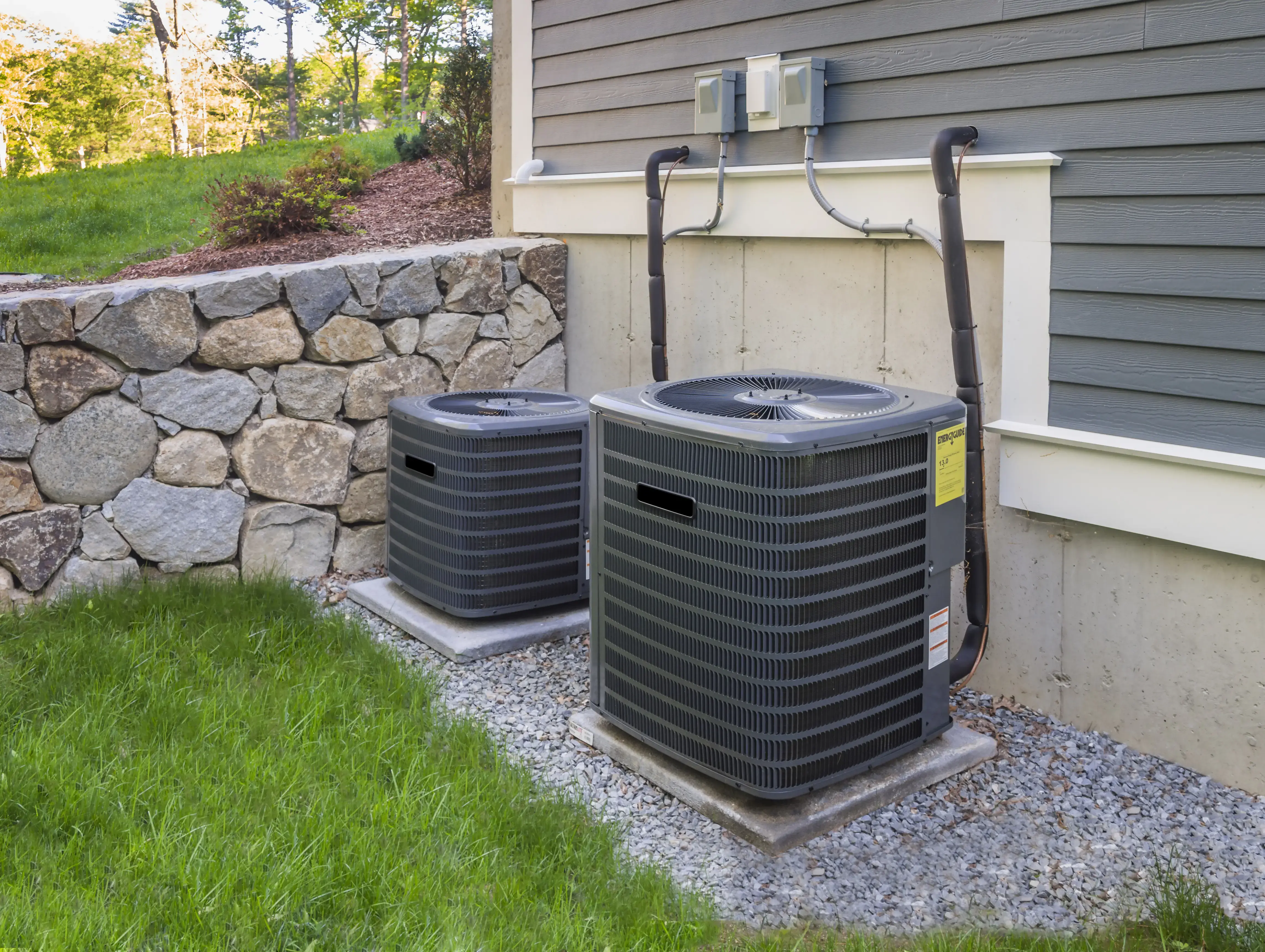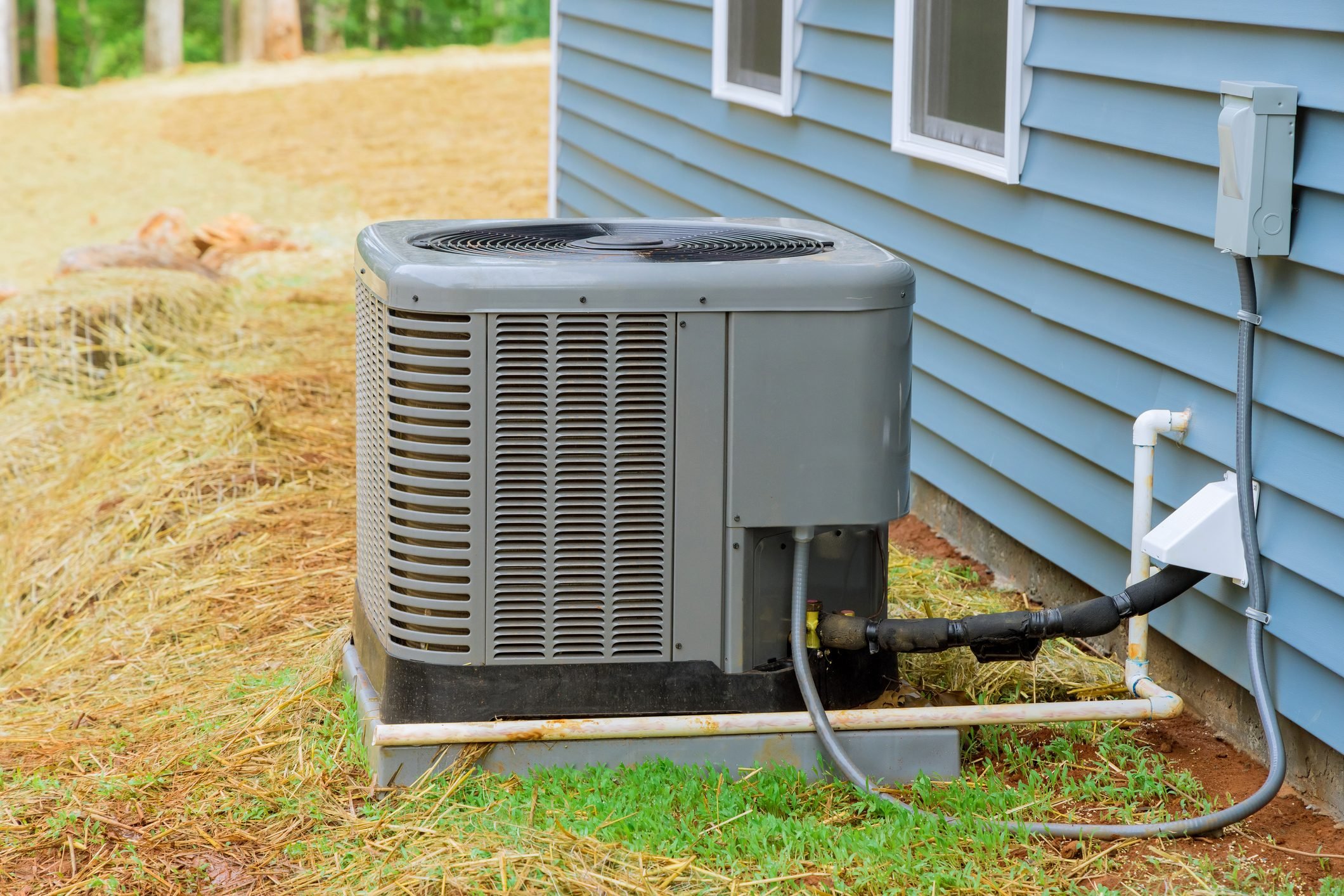Learn how HVAC experts support dependable indoor HVAC performance
Discovering the Crucial Elements of an Efficient A/c System
A reliable a/c system is improved a number of essential elements that work in consistency. Each part, from the thermostat to the ductwork, plays a necessary duty in maintaining comfort and energy performance. Understanding these aspects is critical for enhancing efficiency and improving indoor air high quality. As one examines these elements, the detailed connections in between them reveal insights right into enhancing overall system efficiency. What particular variables contribute most to this efficiency?
The Role of the Thermostat in Cooling And Heating Effectiveness

Although commonly neglected, the thermostat plays an important role in the efficiency of HVAC systems. HVAC experts. This small gadget acts as the key nerve center, regulating temperature setups and making sure perfect comfort within a space. By precisely picking up the ambient temperature level, the thermostat interacts with the air, home heating, and ventilation conditioning devices to keep the preferred climate
An effective thermostat minimizes power intake by activating the heating and cooling system just when essential, thereby stopping excessive home heating or cooling. Modern smart and programmable thermostats enhance this efficiency further by allowing customers to establish timetables and remotely change settings, adapting to day-to-day regimens.
Additionally, the placement of the thermostat is essential; incorrect location can bring about unreliable temperature level readings, causing inefficient procedure. In general, a well-functioning thermostat not only enhances convenience yet additionally contributes markedly to energy savings and the durability of the a/c system.
Understanding the Significance of Air Filters
Air filters serve a vital function in HVAC systems by guaranteeing that the air circulating within a room continues to be clean and healthy. These filters catch dust, allergens, and various other contaminants, preventing them from being recirculated throughout the setting. By recording these fragments, air filters add to boosted interior air high quality, which can significantly profit occupants' wellness, specifically those with allergies or respiratory system problems.
Furthermore, preserving clean air filters enhances the performance of HVAC systems. Clogged filters can restrict airflow, causing the system to work tougher to keep desired temperature levels, bring about raised energy intake and higher utility bills. Regularly replacing or cleansing filters is an essential maintenance step that can extend the life expectancy of cooling and heating devices. Inevitably, comprehending the relevance of air filters enables house owners and structure managers to take proactive measures to assure a well-functioning, efficient a/c system that advertises a safe and comfy interior environment.

The Capability of the Heating System and Heatpump
Furnaces and warm pumps are critical components of a/c systems, liable for providing warmth throughout colder months. Heaters run by home heating air with combustion or electric resistance, after that dispersing it throughout the home via ducts. They generally offer quick home heating and can be fueled by gas, electrical energy, or oil, depending on the system type.
On the other hand, heat pumps transfer warm instead than create it. They remove heat from the outside air or ground, also in low temperatures, and transfer it inside. HVAC experts. This twin performance permits heatpump to likewise give air conditioning in warmer months, making them flexible options for year-round climate control
Both systems require correct upkeep to assure performance and long life. While heating systems succeed in extreme cold, heatpump can be helpful in moderate climates. Comprehending their distinctive capabilities help homeowners in selecting the most appropriate choice for their home heating requires.
Discovering the Air Conditioning System
The air conditioning unit is an essential part of heating and cooling systems, available in various types to match various requirements. Understanding the effectiveness scores of these units is necessary for making educated selections about power usage and expense. This area will certainly explore the diverse kinds of a/c unit and clear up just how performance ratings impact performance.
Sorts Of Air Conditioners
While numerous variables affect the selection of a/c systems, comprehending the different types available is vital for house owners and building managers alike. Central air conditioners are made to cool down whole homes or buildings, utilizing a network of air ducts for air movement. Home window devices use an even more local remedy, suitable for single areas or tiny spaces. Mobile a/c give flexibility, permitting customers to relocate the unit as required. Ductless mini-split systems are another choice, incorporating the performance of main systems with the comfort of zoning, as they call for no ductwork. Ultimately, geothermal systems harness the earth's temperature level for energy-efficient air conditioning. Each kind features distinct advantages, making informed options look at more info vital for reliable climate control.

Effectiveness Scores Explained
Understanding effectiveness scores is vital for picking the right cooling system, as these metrics supply insight into the system's efficiency and energy intake. The most common ranking for ac unit is the Seasonal Energy Efficiency Proportion (SEER), which determines the cooling result throughout a normal air conditioning season split by the overall electric power input. A higher SEER suggests much better performance. In addition, the Power Effectiveness Proportion (EER) is used for measuring efficiency under certain problems. One more vital metric is the Energy Celebrity accreditation, which symbolizes that a system meets stringent power efficiency standards. By reviewing these scores, customers can make educated options that not just optimize convenience however likewise reduce power expenses and ecological influence.
The Significance of Ductwork and Air movement
Efficient ductwork layout and air movement management play critical duties in the total efficiency and performance of cooling and heating systems. Appropriate ductwork warranties that conditioned air is dispersed evenly throughout a room, lessening temperature fluctuations and boosting comfort. Properly designed air ducts minimize resistance to air movement, reducing the workload on heating and cooling tools and inevitably reducing power consumption.
Air movement management involves purposefully putting vents and registers to improve the circulation of air. This avoids common problems such as chilly or hot areas, which can happen when air movement is obstructed or inadequately well balanced. Furthermore, the appropriate air duct materials and insulation can further improve effectiveness by decreasing warm loss or gain throughout air transit.
A reliable ductwork system not just adds to energy financial savings yet can also lengthen the life-span of heating and cooling devices by lowering unnecessary strain (HVAC experts). Understanding the relevance of ductwork and air flow is crucial for attaining peak Cooling and heating system efficiency.
Normal Maintenance Practices to Improve Efficiency
Normal maintenance techniques are crucial for making sure peak performance of a/c systems. These techniques consist of routine inspections, cleaning, and needed repair work to maintain the system running effectively. On a regular basis transforming air filters is important, as clogged filters can obstruct airflow and decrease performance. Additionally, professionals must check and tidy evaporator and condenser coils to avoid overheating and energy waste.
Annual professional assessments are additionally suggested, as trained professionals can identify possible problems before they escalate. Lubing moving parts minimizes wear and tear, contributing to a much longer lifespan for the system. Furthermore, making sure that the thermostat functions appropriately help in keeping suitable temperature level control.

Frequently Asked Inquiries
How Frequently Should I Replace My Thermostat?
Thermostats ought to usually be replaced every 5 to one decade, relying on use and technology improvements. Regular checks are advisable to ensure peak performance, especially if experiencing inconsistent temperature control or enhanced power expenses.
What Size Air Filter Is Ideal for My A/c System?
The very best size air filter for a HVAC system differs by unit design. Normally, it's important to speak with the proprietor's guidebook or examine the existing filter measurements to assure peak efficiency and air top quality.
Can I Mount a Warm Pump Myself?
Setting up a heatpump independently is feasible for experienced people, yet it needs expertise of regional codes and electric systems. Employing an expert is advised to ensure correct setup and check over here excellent system performance.
Just how Do I Know if My Ductwork Is Effective?
To determine ductwork effectiveness, one must check for leaks, step airflow at vents, inspect insulation high quality, and evaluate temperature level distinctions between supply and return ducts. Professional assessments can offer extensive understandings right into general efficiency.
What Are Indications My HVAC Needs Immediate Maintenance?
Signs that a heating and cooling system needs immediate maintenance consist of unusual noises, irregular temperature levels, boosted energy costs, unpleasant odors, and constant cycling. Attending to these problems without delay can protect against further damage and warranty optimal system efficiency.
Air filters serve a vital feature in HVAC systems by ensuring that the air circulating within a space stays clean and healthy and balanced. Furthermore, preserving tidy air filters boosts the performance of Heating and cooling systems. Ductless mini-split systems go are another option, combining the performance of central systems with the ease of zoning, as they require no ductwork. Comprehending performance ratings is important for picking the best air conditioning system, as these metrics provide insight right into the system's performance and energy intake. The ideal dimension air filter for an A/c system differs by device layout.